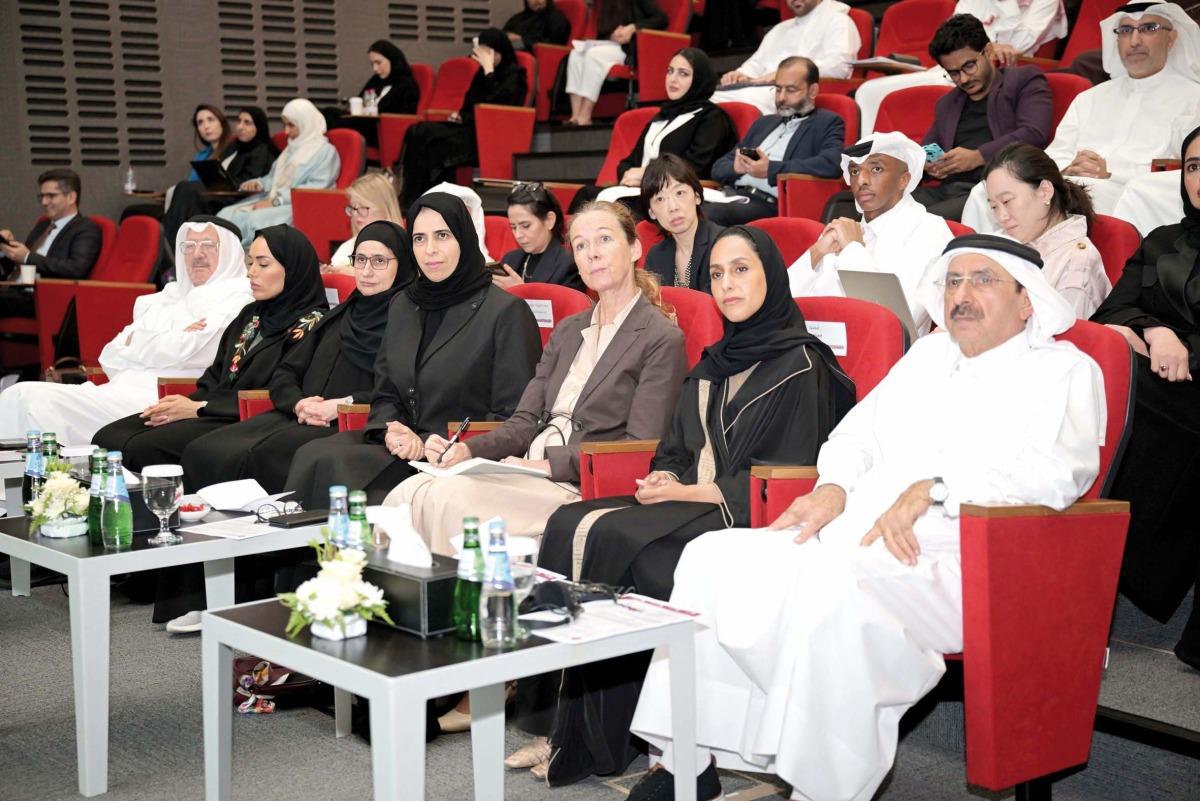
'International Systems Crumbling, Revealing Fragility Of Global Order'
Doha, Qatar: Under the patronage of Minister of Education and Higher Education H E Lolwah bint Rashid Al Khater and Dean of College of Arts and Sciences Dr. Fatima bint Ali Al Kubaisi, the Gulf Studies Center at Qatar University (QU), in collaboration with Waseda University in Japan, concluded the Ninth Annual Interdisciplinary Conference.
Themed 'The Gulf Between Stability and Chaos in the Emerging Regional Order', the conference brought together leading experts and researchers from various disciplines.
The event featured over 20 researchers who presented insights and studies aimed at fostering a deeper understanding of ongoing transformations and their implications for regional stability and prosperity.
In her speech, the Minister of Education and Higher Education remarked,“Today, as we witness wars of extermination and rapidly escalating humanitarian crises, we find ourselves compelled to confront the reality that the international political and legal systems we once relied on are crumbling, revealing the fragility of the global order we have known.
"This collapse raises pressing questions for all of us, particularly in the Gulf region, prompting us to reflect on the impact of these international failures on our region and how to prepare for a future where international institutions, tasked with ensuring justice and stability, appear to be less effective and, perhaps, less just and equitable.”
She added,“As these dynamics evolve, it becomes essential to address the specific implications for our region. Despite the challenges, the Gulf has remained a symbol of resilience and cooperation. However, recent transformations remind us that we are not immune to the challenges shaping the world today. We have witnessed moments of unity and reconciliation within GCC, but we have also observed the emergence of new rivalries beyond our Arab Gulf borders. These experiences underscore that regional security is not guaranteed by internal cohesion alone; it must be built and maintained in alignment with the international challenges we all face.”
Dr. Maryam Al Kuwari, Director of the Gulf Studies Center at QU, emphasised the significance of collaboration between the center and the Qatar Chair at Waseda University. She said the conference provided an opportunity for participants to navigate a world filled with challenges, where instability intertwines with the complex bonds connecting nations.
Dr. Al Kuwari highlighted the Gulf region's growing global significance due to its strategic role in international balances of power. She pointed out that since the Gulf War-often seen as a precursor to deeper conflicts-the outcomes have far exceeded initial causes. Instead of resolving local disputes, major powers pursued broader objectives, reshaping the regional order, or what is often referred to as the“New Middle East.” These conflicts have grown increasingly complex, underscoring the need for dedicated efforts to promote a culture of security and stability.
Dr. Abdullah Baabood, Chair of Qatar for Islamic Area Studies at Waseda University and a member of the Gulf Studies Center, said conference comes at a critical time, coinciding with major changes at both the regional and global levels.

Legal Disclaimer:
MENAFN provides the
information “as is” without warranty of any kind. We do not accept
any responsibility or liability for the accuracy, content, images,
videos, licenses, completeness, legality, or reliability of the information
contained in this article. If you have any complaints or copyright
issues related to this article, kindly contact the provider above.

















Comments
No comment